
-
Find the right food for your petTake this quiz to see which food may be the best for your furry friend.Find the right food for your petTake this quiz to see which food may be the best for your furry friend.Featured products
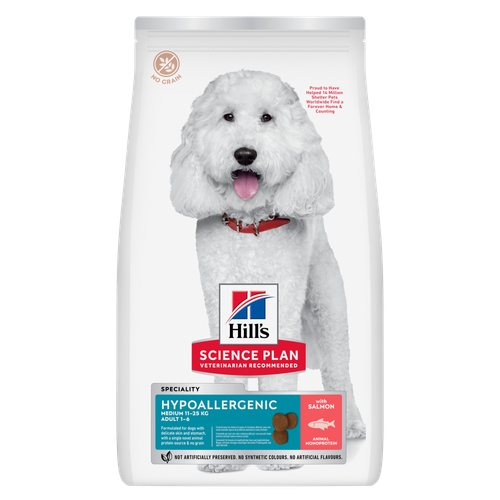 Hypoallergenic Medium Adult Dog Food
Hypoallergenic Medium Adult Dog FoodScience Plan Hypoallergenic Medium Adult dog food with Salmon is a gentle, science-led formula crafted for dogs with food sensitivities. Made with carefully selected, high-quality novel proteins and no grains, it’s tailored to minimise common triggers that can lead to skin and digestive discomfort.
Shop Now Perfect Weight Small & Mini Adult Dog Food
Perfect Weight Small & Mini Adult Dog FoodHill's Science Plan Adult Small & Mini Dog Food with Turkey is a complete premium pet food for adult small dogs from 1 year old that are prone to weight gain or slightly overweight. This deliciously smooth mousse is formulated to deliver the appropriate amount of energy to support weight maintenance in adult dogs.
Shop Now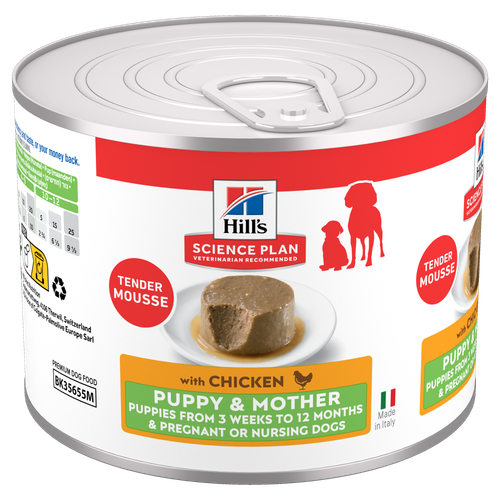 Puppy & Mother Tender Mousse Dog Food
Puppy & Mother Tender Mousse Dog FoodHill's Science Plan Puppy & Mother Tender Mousse Dog Food with Chicken is a complete premium pet food for puppies and pregnant or nursing dogs. Formulated with chicken and other specially selected ingredients, including minerals and antioxidants to support gut health and optimal growth, it comes in a soft mousse texture they'll love.
Shop NowFeatured products Hypoallergenic Dry Cat Food
Hypoallergenic Dry Cat FoodHILL'S SCIENCE PLAN Hypoallergenic Adult cat food with egg & insect protein is a complete pet food for adult cat 1–6 years old. It's formulated for cats with delicate skin and stomach, with limited high quality novel protein sources & no grain.
Shop Now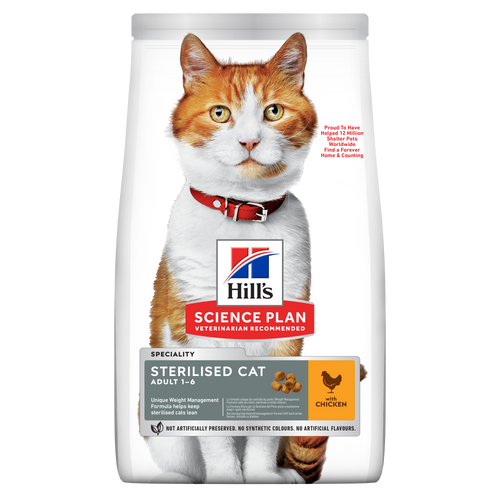 Sterilised Adult Cat Food
Sterilised Adult Cat FoodHill's Science Plan Adult Sterilised Cat Dry Food with Chicken is specially formulated with ActivBiome+ Multi-Benefit Technology. It is a precisely balanced nutrition, tailored to meet the needs of sterilised cats, to help keep sthem lean & healthy.
Shop Now Oral Care Adult Cat Food
Oral Care Adult Cat FoodHill's Science Plan Oral Care Adult Cat Food with Chicken contains clinically proven kibble technology to reduce plaque & tartar build up.
Shop Now -
Dog
- Dog Tips & Articles
-
Health Category
- Weight
- Food & Environmental Sensitivities
- Urinary
- Digestive
- Joint
- Kidney
-
Life Stage
- Puppy Nutrition
- Adult Nutrition
- Senior Nutrition
Cat- Cat Tips & Articles
-
Health Category
- Weight
- Skin & Food Sensitivities
- Urinary
- Digestive
- Kidney
-
Life Stage
- Kitten Nutrition
- Adult Nutrition
Featured articles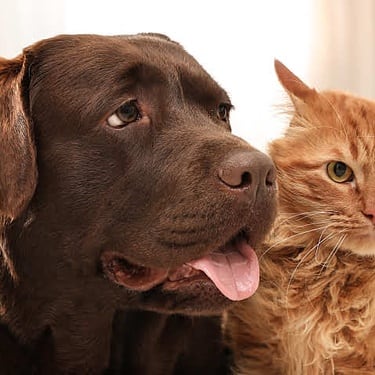 What Cleaning Products Are Safe for Pets?
What Cleaning Products Are Safe for Pets?Learn which cleaning product ingredients can be hazardous for dogs & cats, which alternatives are safer and tips for using cleaning products around pets.
Read More Tips For Mixing Wet And Dry Pet Food
Tips For Mixing Wet And Dry Pet FoodDiscover tips for mixing wet and dry pet food to ensure balanced nutrition and variety for your pet. For comprehensive feeding advice, visit Hill's Pet UK.
Read MoreTips for Working From Home With a PetGet helpful information on how to get all of your work done while keeping your dog or cat entertained when working from home.
Read More -


If you come home and your pooch doesn't greet you as usual or if the place looks like it's been hit by a tornado, you might think that your dog is mad at you for leaving. Here's what you need to know about dogs and anger, and how to tell if your dog is upset.
Dogs and Anger
 It turns out that the question of whether your dog is mad at you or not is the wrong question to ask. While dogs can indeed get upset by a situation, they don't get mad at someone in the same way that you do. According to HealthyPsych, anger is what psychologists refer to as a secondary emotion, which is a human response to primary emotions like fear and sadness. Anger is too complex a feeling for dogs to truly experience; however, dogs are capable of experiencing the more basic emotions that humans use anger to hide.
It turns out that the question of whether your dog is mad at you or not is the wrong question to ask. While dogs can indeed get upset by a situation, they don't get mad at someone in the same way that you do. According to HealthyPsych, anger is what psychologists refer to as a secondary emotion, which is a human response to primary emotions like fear and sadness. Anger is too complex a feeling for dogs to truly experience; however, dogs are capable of experiencing the more basic emotions that humans use anger to hide.
Dogs also don't assign blame in the way that humans do, says Cuteness. While your dog might make associations between an object or a situation and the feelings they inspire — for example, a puppy might trip down steps and get hurt while carrying a toy and then associate the toy with something harmful — they don't actually think about it being the object's fault. It simply doesn't occur to your pooch to blame you for what's making them unhappy.


Tasty Tips
Signs That Your Dog Is Upset
Your dog may try to communicate that they're upset in ways that make them seem angry with you. But more likely than not, they're simply trying to convey their feelings and looking to you to stop the source of their distress.
Here are common dog behaviours that are often mistakenly interpreted as anger toward a pet parent.
Chewing Furniture
What it might mean: Rather than an attempt to get revenge, your dog is probably bored and making a desperate attempt at amusement in the absence of company or other entertainment.
What you should do: Make sure to provide your pup with toys when you leave them alone. The best kind of toy is interactive, like a puzzle or treat-dispensing toy. Leaving the radio or TV on can also help your pup feel less lonely. A video or voice recording of yourself is even better.
Growling or Snarling
What it might mean: Growling is usually your dog's way of letting you know that something is upsetting them, and they want it to stop, according to Reader's Digest. Dogs growl for various reasons that have nothing to do with anger, such as resource guarding. You'll be able to tell if this is the cause if they growl over food or a toy that they fear you or another animal might take from them. Similarly, you might hear a growl if you make them move from a comfortable spot.
What you should do: Don't punish or yell at your dog for growling. Doing so could make the behaviour worse or frighten them into snapping or biting. Instead, stay calm and ignore the behaviour. If you need to take something away from a resource-guarding dog, try to distract them with a treat while you remove the object, suggests iHeartDogs. Watch for other signs of aggression, such as showing the whites of their eyes, flattened ears, repetitive lip licking or bared teeth. If you see any of these signs, leave your dog alone and wait for them to lose interest in the object. Otherwise, you risk getting bitten.
Peeing on Your Things
What it might mean: While you may think your dog peed on the pile of laundry you left on the floor out of spite, the truth is there are a number of reasons dogs might pee on your stuff. According to The Nest, one reason dogs pee on their pet parents' things is to mark their territory. It could also mean that you didn't let them out soon enough when they needed to go to the bathroom. If this behaviour mostly happens when your dog is home alone, it could be a sign of separation anxiety. And if your dog is housebroken but often has accidents on soft places, like piles of clothing, it could signal a health problem such as a urinary tract infection or urinary incontinence.
What you should do: If you think a medical issue or separation anxiety might be causing this behaviour, consult your veterinarian. Otherwise, keep in mind that your dog's bladder doesn't always operate on your preferred schedule and be sure to pay attention when they let you know that they need to go. If your schedule prevents you from being able to attend to your dog's needs right away, you might consider a dog walker or doggy door to continue to train them that the best place to relieve themselves is outside. Using dog training pads near the spots where they tend to sneak off for a potty break should be considered a last resort so they don't associate going indoors as an acceptable behaviour. And avoid leaving dirty laundry or other items you don't want to get peed on in areas accessible to your dog.
Avoiding You
What it might mean: If your pooch is avoiding you, it probably means that they're stressed out for some reason, and they need time alone to cope. Hiding can also signal that your dog is in pain.
What you should do: First, don't take it personally. Remember that your dog isn't actually angry at you. It's possible your pup is picking up on your own bad mood and it's causing them stress. It could also be something innocuous, like the smell of your perfume or hair product. Or, if you've been playing with them or teasing them, they might be frustrated or overstimulated and need space to calm down. In any case, it's best to give them their space and, in the meantime, check yourself to make sure you're not giving off an upsetting vibe or that you haven't pushed your dog too far. Give them the chance to chill out and return to you when they feel ready.
If you notice that your dog is in pain for any reason, it is best to get them to the veterinarian as soon as you can.
Instead of wondering if your dog is mad at you the next time they act out, you'll know how to respond and help them relax. Knowing how to better read your dog's behaviour will only serve to strengthen your bond.


Jean Marie Bauhaus is a pet parent, pet blogger, and novelist from Tulsa, Oklahoma, where she usually writes under the supervision of a lapful of fur babies.
Related products

Science Plan Hypoallergenic Medium Adult dog food with Salmon is a gentle, science-led formula crafted for dogs with food sensitivities. Made with carefully selected, high-quality novel proteins and no grains, it’s tailored to minimise common triggers that can lead to skin and digestive discomfort.

Hill's Science Plan Puppy & Mother Tender Mousse Dog Food with Chicken is a complete premium pet food for puppies and pregnant or nursing dogs. Formulated with chicken and other specially selected ingredients, including minerals and antioxidants to support gut health and optimal growth, it comes in a soft mousse texture they'll love.
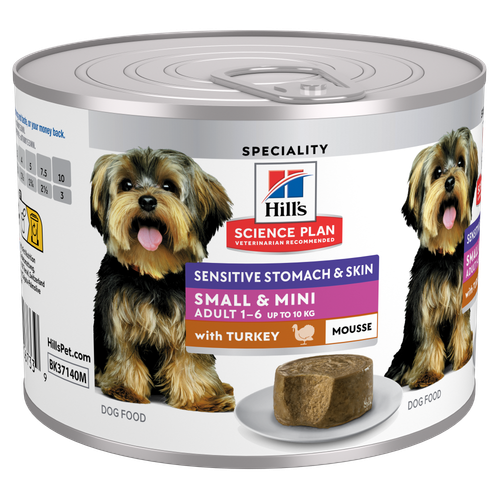
Hill's Science Plan Sensitive Stomach and Skin Small & Mini Adult Dog Food with Turkey is a complete premium pet food for small breed adult dogs aged 1–6 years. This deliciously soft mousse is enriched with ingredients that support digestive health & skin care.

Hill's Science Plan Adult Small & Mini Dog Food with Turkey is a complete premium pet food for adult small dogs from 1 year old that are prone to weight gain or slightly overweight. This deliciously smooth mousse is formulated to deliver the appropriate amount of energy to support weight maintenance in adult dogs.
Related articles
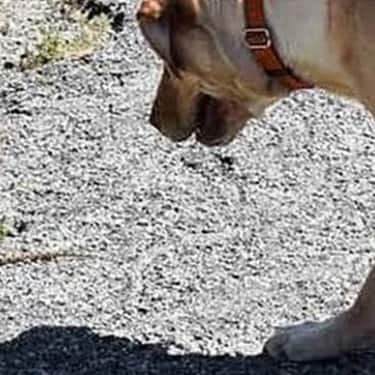
Learn about snake bites on dogs, including clinical symptoms to look for, what to do if you think your dog was bitten, and treatment & prevention options.
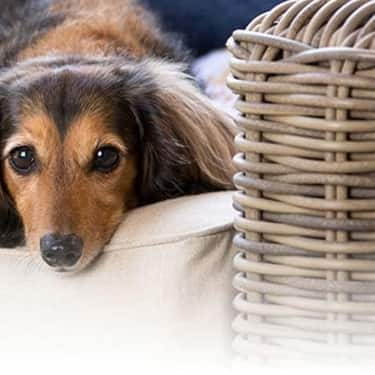
Puppy, kitten and pet dieting, cat nutrition and dog nutrition information from Hill's Pet
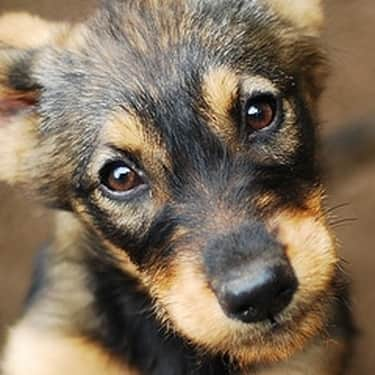
Discover the causes, signs, and treatments of kidney disease in dogs and find methods of supporting your dog's kidney health. Learn more at Hill's Pet South Africa.

Dog obesity is a significant problem - learn more about helping your dog become trimmer and healthier through improved nutrition.

Put your dog on a diet without them knowing
Our low calorie formula helps you control your dog's weight. It's packed with high-quality protein for building lean muscles, and made with purposeful ingredients for a flavorful, nutritious meal. Clinically proven antioxidants, Vitamin C+E, help promote a healthy immune system.
Put your dog on a diet without them knowing
Our low calorie formula helps you control your dog's weight. It's packed with high-quality protein for building lean muscles, and made with purposeful ingredients for a flavorful, nutritious meal. Clinically proven antioxidants, Vitamin C+E, help promote a healthy immune system.

